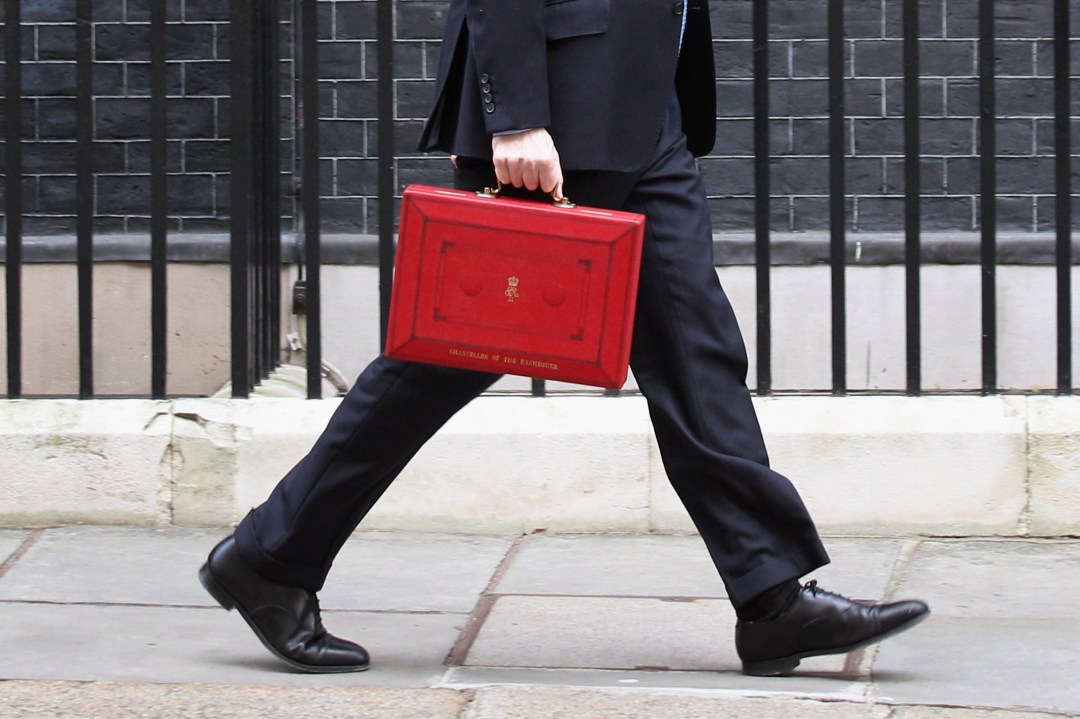Will the Budget make a difference? Nowadays, we have a quick and easy guide: Box 3.1 from the Office for Budget Responsibility — otherwise known as the ‘blind bit of difference’ test. Sure, Budgets can make your hot takeaway lunch 20 per cent more expensive and your cigarettes cost £7.50 a packet, but the question, in a recession, is whether any stardust can be found between its pages. Whether it will be do anything for jobs, the deficit or economic growth. The Budget nowadays is handed to the OBR in advance of publication and assessed for its impact on the economy. The verdict: speeding up the corporation tax cut (another welcome move, and brave of Osbrone to do it during a deficit period) may add 0.1 percentage points on economic growth in four years’ time. Other than that, the grim outlook hasn’t
changed.
In my Telegraph column today I say that Osborne is slowly breaking free of the traps set for him by Gordon Brown, but doing it too slowly. Take the 50p tax: the Chancellor had wanted to return it to a genuinely-competitive 40p tax. But the Lib Dems wouldn’t wear it without a Mansion Tax demand that Cameron refused. The 45p tax we’re getting next April is still welcome, it doesn’t stick out as much on the world stage and it’s a cut far bigger than many thought Osborne would do. But it’s hardly enough to have émigrés flocking back. Britain used to have the highest top rate of tax in the G20, now we have the 3rd highest. In this globalised world, where countries compete for people, this is no great advert for settling in Britain. Osborne has taken plenty political fire for this, and it seems a shame to go into battle for so small a prize.
We say in the lead article of The Spectator this week that this Budget has focused on taxation — no one has discussed spending, the other side of the ledger. Until Osborne is more ambitious than his current cuts, which total just under 1 per cent a year, he’ll be forever condemned to tinker. Taxing Peter’s granny to pay Paul. Even Gordon Brown updated his spending plans every two years, and the opportunity exists for Osborne to do it this year. Health spending doubled under Brown, for example. If he were to find health savings in England, as Labour is doing in
Wales, he’d have enough for a tax cut that would pass the OBR’s ‘blind bit of difference’ test.
Osborne had hoped to fight the next election having abolished the deficit and celebrating with tax cuts. Now he’s switched to a different strategy: we’re still midway through the recovery, don’t let Labour ruin it. Ever the optimist, Osborne sees political upside in the economic problems. Major in 1997 and Churchill in 1945 had both won their battles, runs the argument, and look at the thanks they got! So being midway through a battle, thinks Osborne, is a fairly good place from which to fight an election.
That’s one way of putting it. Another one is the risk that voters may think: you told us you’d sort the deficit five years ago, and yet here it is. Look at Germany, Norway, Austria, Ireland, all out of recession — and you’re still offering cuts! Osborne is a great one for political planning and strategy, and his agenda — local pay bargaining, the lowest corporation tax in the G20 — could break the unions’ power and change Britain as powerfully as the last Conservative government did. But long-term plans gang aft agley.
Opinions vary as to how far a second Cameron term is inevitable. I don’t regard it as such, and if British politics has taught us anything in the last few years it’s to not take
anything for granted. Yes, Labour’s leader may be a figure of ridicule. But the party’s brand is strong and its poll rating still high. That’s why Osborne should make faster
progress on the recovery, funded by deeper savings. He’s getting better and bolder with each budget, but his development curve is still too slow for the electoral cycle. The longer he takes, the greater risk he runs of what would be (for him) the worst political epitaph of all: that he was a great warm-up act for the next Labour government.








Comments